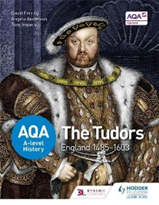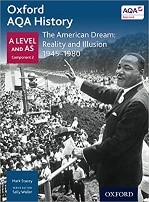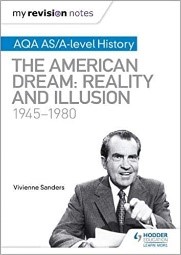History
History - Level 3 Advanced GCE (A Level) |
|
QualificationExam board: AQA , A Level, Level 3 Advanced GCE in History |
|
Entry RequirementsTo study History at Coombe Dean, you will be required to have an interest in the past, an enquiring mind, and a positive work ethic. It is recommended that students have studied History at GCSE level to grade 6 or above and have strong English language skills. |
|
Skills requiredEssay writing, PEEL, reaching a judgement, source analysis (3Cs), source evaluation (3Ps), independent research skills, time management. |
|
Student testimony‘I chose to study History at Coombe Dean because I love the subject and knew that I would be so well supported by my teachers. I have felt confident joining in Year 12 because our teachers embedded the skills for A Level early with us at GCSE. History is great because you get to learn such a wide range of knowledge that can be applied to current situations. We debate, work in groups and independently. I love that I really have the time to delve into the subject in such great detail. The topics are really interesting, and the teachers are really enthusiastic, knowledgeable and supportive. It’s a facilitating subject, so the skills I am learning in it really compliment my other A Levels too.’ Isabelle Edwards, Year 12. |
|
Career pathsStudying history provides students with cultural awareness and an understanding of how to learn from the successes and mistakes of the past. History equips students with skills that are not confined to the study of the past. Skills of analysis are invaluable in many jobs; the ability to analyse and prioritise information is vital to decision making. There are a wealth of career opportunities available to history students, from media to business, research, law, education and government intelligence. Studying history endorses independence in young people and provides a skill set for students to be able to keep their career options open. |
|
Course outline/assessmentAll topics, aside from the coursework, are examined at the end of Year 13. Prior to this, students will complete assessments within their lessons alongside mock exams. |
|
|
Paper 1C: The Tudors, England, 1485-1603 |
40% A level Exam |
| Paper 2Q: The American Dream: Reality and Illusion? 1945-1980 |
40% A level Exam |
|
Coursework (NEA) Student Choice |
20% of your A Level, assessed by your teachers |
Recommended resources
The core texts for the course that you need to purchase are below. The revision guides are recommended, but not compulsory. The hyperlinks take you to amazon.co.uk to purchase a new copy, but remember to check for ‘used’ copies on Amazon, eBay and other sites.
Paper 1C, Tudors:

AQA A-level History: The Tudors: England 1485-1603 Paperback – 26 Jun. 2015, by David Ferriby (Author), Angela Anderson (Author), P A Imperato (Author)
Link to amazon.co.uk RRP: £32

My Revision Notes: AQA AS/A-level History: The Tudors: England, 1485-1603 Paperback – 25 Nov. 2016
Link to amazon.co.uk RRP: £11.99
Paper 2Q, American Dream:

Oxford AQA History for A Level: The American Dream: Reality and Illusion 1945-1980 (Oxford A Level History for AQA) Paperback – 1 Oct. 2015 by Sally Walker (Author), Mark Stacey (Contributor)
Link to amazon.co.uk RRP: £26.50

My Revision Notes: AQA AS/A-level History: The American Dream: Reality and Illusion, 1945-1980 Paperback – 26 Jan. 2018 by Vivienne Sanders (Author)
Link to amazon.co.uk RRP: £9.59
______________________________________________________________________________________________________________________
Course content outline
AQA A-Level History (Paper 1C): The Tudors: England, 1485–1603
Power. Rebellion. Religion. Intrigue. This is history with the drama turned all the way up!
What is this course all about?
The Tudors weren’t just monarchs — they were nation builders, rule breakers, and survivors.
Over just 118 years, England was transformed from a fragile kingdom after civil war into a major European power. You'll explore how the Tudor dynasty:
-
Seized and secured the throne
-
Took on the Pope and reshaped religion
-
Faced rebellions and threats to their survival
-
Controlled (and sometimes lost control of) the people
This is a course about how power works — and how it can be used, challenged, and even overturned.
What will you study?
1. Monarchs and Ministers
-
How Henry VII built a new dynasty after defeating Richard III
-
Henry VIII's break with Rome — and the creation of the Church of England
-
Powerful advisors like Thomas Wolsey, Thomas Cromwell, and William Cecil
-
Elizabeth I’s skill in managing religion, court politics, and national threats
2. Religion and Division
-
The rollercoaster ride of religious change: Catholic ➝ Protestant ➝ Catholic ➝ Protestant again
-
Bloody Mary and the Marian burnings
-
Elizabeth’s “Middle Way” — and resistance from Catholics and Puritans
-
How religion became a battleground for identity and loyalty
3. Rebellion and Resistance
-
Why people rose up in protest: taxes, religion, food shortages
-
Major uprisings like the Pilgrimage of Grace and the Northern Rebellion
-
How the Tudors put down revolts and tightened their grip on power
4. Society and Economy
-
What life was like for ordinary people in towns and the countryside
-
The rise in poverty, vagrancy, and poor laws
-
Enclosure of land and the growth of trade and exploration
-
Social change through education, population growth, and new ideas
Why it matters today
This course isn't just about kings and queens. It's about:
-
How power is built and challenged — just like today’s politics
-
What happens when religion and government clash
-
How ordinary people resist injustice
-
How leaders use image, spin, and fear to stay in control
From political propaganda to religious division, you’ll see how the Tudor world mirrors the modern one — from protest movements to media manipulation.
What skills will you gain?
This isn’t just storytelling (though it’s full of drama). It trains you to:
-
Ask sharp questions and analyse complex sources
-
Build compelling, evidence-based arguments
-
Understand how change happens — and why it matters
-
Write clearly and powerfully about big ideas
These are skills that set you up for success in law, politics, journalism, education, business, and more.
The Tudors: England, 1485–1603 is history at its most gripping — packed with ambition, betrayal, power struggles, rebellion, and transformation.
Study it because it’s fascinating.
Study it because it sharpens your thinking.
Study it because it’s the origin story of modern Britain.
🎓 AQA A-Level History (Paper 2Q): The American Dream: Reality and Illusion, 1945–1980
Discover the truth behind the world’s most famous promise.
What will you study?
1. Politics: How powerful is the President – and who really controls America?
You’ll study the post-war presidents — Truman, Eisenhower, Kennedy, Johnson, Nixon, and Ford — and how they tried to lead a changing country.
-
Did they expand or limit freedom?
-
How did presidential power grow (and get abused)?
-
What happened during major scandals like Watergate?
-
How did the Cold War shape every political decision?
Key concepts: power, leadership, democracy, trust in government
Today’s links: presidential authority, political scandal, public trust in politics
2. Civil Rights: Who gets to live the American Dream?
You’ll trace the struggle of African Americans and other minority groups to gain equal rights in a country that promised freedom — but often denied it.
-
The rise of Martin Luther King Jr., the Montgomery Bus Boycott, and the March on Washington
-
The push for civil rights laws in the 1960s — and the resistance to them
-
The rise of Black Power and more radical activism
-
The challenges faced by Latino Americans, Native Americans, and women
Key concepts: equality, justice, protest, identity
Today’s links: Black Lives Matter, racial inequality, feminism, protest movements
3. Society: How did America change at home?
America in this period saw dramatic shifts in how people lived, worked, and related to each other.
-
The growth of consumer culture: cars, TV, advertising, suburbs
-
The experience of young people: from rock and roll to rebellion, including protests and counterculture (e.g. hippies, student movements)
-
Changing roles for women: the rise of second-wave feminism
-
The tension between traditional values and radical change
Key concepts: social change, identity, culture, generational conflict
Today’s links: youth culture, gender roles, consumerism, culture wars
4. Foreign Policy: How did America use its global power — and at what cost?
America emerged from WWII as a superpower — but with great power came difficult choices.
-
The deepening of the Cold War: arms race, containment, paranoia
-
American intervention in Vietnam: why it happened, how it failed, and what it did to American society
-
Growing public backlash: anti-war protests, media scrutiny, loss of confidence
Key concepts: war, ideology, global influence, national identity
Today’s links: U.S. foreign policy, military intervention, public opinion on war
What themes tie it all together?
This course isn’t just a list of events. It’s about big questions that still matter:
-
Is freedom just a word — or a lived experience?
-
Who holds power — and who gets left behind?
-
Can a democracy survive division, inequality, and scandal?
💬 Why this course is exciting and relevant
Even if you’ve never studied American history before, this topic is gripping, human, and powerful. It’s packed with:
-
Famous figures and moments you’ll recognise (MLK, Kennedy, Nixon, Vietnam)
-
Protests, assassinations, culture wars, and civil rights battles
-
Real people fighting for justice, fairness, and equality
And it all helps you understand how America became the nation it is today — and why that matters for the world.
This course gives you:
-
Knowledge of one of the world’s most influential countries
-
Critical thinking and analytical writing skills
-
A deeper understanding of politics, protest, power, identity, and change
AQA A-Level History (NEA): Coursework- you decide!
This is your chance to immerse yourself into your favourite period of time. All students will conduct independent research to complete a 3500-4500-word essay on a topic of their choice, covering 100 years of history. This is completed in lesson time and counts for 20% of your A Level.













